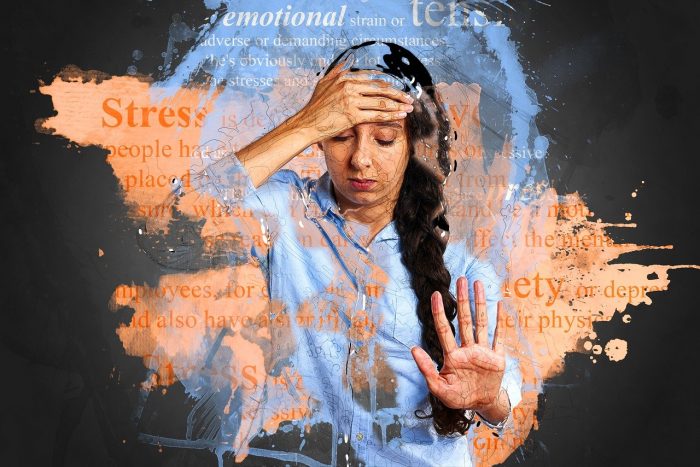panNo one can steer their way through life without incurring certain worrying and depressing incidents. In some cases, the worry can be overcome with comparative ease, but in others, it can prove so strong that it turns into anxiety which is difficult to suppress. Oftentimes chronic anxiety is apt to bring about anxiety attacks. Once you have suspected that you may be afflicted with acute anxiety and are vulnerable to anxiety attacks, don’t leave the issue unaddressed. There are plenty of ways you can master to alleviate or probably even shake off your condition and return to your normal, untroubled self.

How to be aware of a panic attack?
What is generally referred to as a panic attack is an onrush of intense blinding fear growing out of a strong feeling of anxiety over something, or even with no obvious reason. You recognize a panic attack by the following symptoms:
- feeling downcast with horror and doom about to overtake you
- the feeling of being unable to be in control
- having breathing problems or experiencing a choking feeling
- uncontrollable shaking and shivering
- heart palpitations resembling an actual heart attack
- numbness, needles, and pins in the limbs, all over the body at worst
- hands and legs going shaky
- a strong wish to take oneself off to the toilet
- profuse sweating
- weakness, languor, vertigo
- nausea, stomachache
Panic attacks are definitely unpleasant, and, having experienced them, the afflicted individual would want to steer clear of venues and situations likely to bring them on: open spaces, places with a lot of people milling about, places remote from home or where one feels penned in.
Such attacks can be from 5 to 20 minutes long on average, but in worst cases may go on and on as if triggering subsequent panic attacks and proceed for any length of time to one hour.
The essential thing to know is that a panic attack, however overwhelming, will not evolve into a real heart attack, nor will it entail any bodily harm.
How to cope with anxiety attacks?

In case of occasional onsets of anxiety when it interferes with your concentration or performance you can regain control of yourself by employing several easy-to-use techniques.
When anxiety arises from a depressing situation, misgivings, or apprehension of a forthcoming event, chances are the anxious state wouldn’t last long and is likely to let up after the feared event has played itself off.
Examine your frame of mind
Check your train of thought: it might be that negative thoughts have set in and make you overestimate the harshness of the possible outcome of the situation. It’s up to you to examine your misgivings, see how realistic they are, and consider how you can regain control.
Concentrate on your breathing, breathe regularly and deeply
Begin with 4 counts: breathe in counting out, hold breath and breathe out for the same timespan for several minutes. This will make your breath even, slow down your heartbeat rate, and you will feel yourself easing up noticeably.
If you can make those periods longer, such as 7-7-7 or 10-10-10, it’s even better. You might also find using a stopwatch very helpful. As you’re doing breathing exercises, you start focusing on your breath and the counts or seconds, which already is a form of medication. Eventually, you’ll feel calmer and more relaxed.
Every time you feel an anxiety attack coming, start breathing deeply.
Experiment with aromatherapy
Many kinds of aroma, whether volatilized from oil, incense, or by a burning candle, can produce a soothing effect – especially lavender, sandalwood, and chamomile.
Aromatherapy works through activating particular brain receptors which can incidentally assuage anxiety.
Take short walks or do some yoga

It may work best if you deal with disturbing thoughts by simply walking out on your anxiety. Shifting attention from your mind to your body can take the edge off your troubled feelings.
A quarter of an hour of yoga will serve the purpose; if assuming postures and concentrating proves difficult, take a brisk walk.
Write down your thoughts or speak about your fears
Get yourself to sit down and put the things that cause you anxiety on paper; when you confront your fears it can make them look smaller. Talking to a good listener is also very helpful.
Eat a good breakfast
Jordan Peterson, a Canadian professor of psychology at the University of Toronto and a clinical psychologist, recommends eating a good breakfast. According to him, this reduces anxiety. Here is a video on this:
We’d also recommend watching the following video if you’re suffering from anxiety:
Such techniques can be of particular help in tackling irregular anxiety attacks that are not very severe.
If these little tricks get you nowhere and your anxiety won’t yield, you might have generalized anxiety disorder (GAD), and then you need more than simple coping ploys. More serious treatment ought to be employed. Your strategies need to be long-term ones to stem the symptoms altogether or assuage their severity.
Anxiety coping techniques for a strong and lasting effect
So you cannot shake off anxiety, it keeps hounding you whatever you do, and you have to resort to strong treatment strategies to ward it off and go on living. Then it will be worth your while to consult a mental health specialist to see if they can come up with new and workable options that can really change things for the better.
Detect your triggers and find ways to manage them
Triggers can be obvious, but on the other hand, they may lie hidden from view. Try to pin them yourself, but consider laying your case before a therapist to make sure you haven’t missed anything.
Some of the more common triggers are:
- stresses and conflicts at work
- incessant traveling or driving
- an inherited proclivity to anxiety
- a traumatic situation
- grave chronic illnesses such as cardiac diseases or diabetes
- chronic or incessant pains
- grievances, depression, mental illness
- withdrawal from medicines or substances
- side effects during treatment
- various overwhelming phobias
- overindulgence in caffeine
Embrace cognitive-behavioral therapy (CBT)
Cognitive-behavioral therapy is about teaching people different approaches to situations pregnant with worries and alternative ways of reacting to them. A CBT therapist will help you cope with negative thinking and curb unhelpful reactions before they get the upper hand.
Commit yourself to regular meditations

True, meditation requires good mastery to be really beneficial, but regular committed practice can help you restore your peace of mind and dispose of troubled thoughts which besiege you.
Improve your diet, go for supplements
Reinventing your diet, adding supplements are long-reaching resolves. As proved by research, there are nutrients and supplements that allay anxiety. Some of them are listed here:
- green tea
- food rich in omega-3 fatty acids
- lemon balm
- valerian root brews
- dark chocolate (in reasonable amounts)
The thing is, you will have to wait for a few months before you get the body running on new fuel and you really start to benefit from the nutrition provided. Also, if you are undergoing treatment, check with your doctor to see if the medication is compatible with the food/herbal remedies you employ.
Maintain the health of your mind and body

You will certainly have weaker anxiety symptoms and milder attacks if you work out regularly, stick to a balanced diet, sleep well, and socialize with considerate and caring people.
Discuss the desirability of taking medications with your doctor
Severe cases of anxiety can require medicinal treatment; consult your mental health practitioner if they see it as the best way for you. If they hold that medication can bring you relief, there are several kinds of treatment to address your particular symptoms.
When anxiety is considered to be harmful
Nailing down your particular sort of anxiety is not an easy matter – different people perceive real or imagined threats in their own special way and consequently generate different physical reactions.
Actually, everyone has had panic attacks at some point in their lives because panicking is a natural reaction of the brain to what it deems to be a dangerous situation —no matter how real the danger is.
It means that everyday worries and anxieties can get out of hand, grow on you and evolve into an anxiety attack. These are usually easily manageable at the beginning but apt to aggravate as hours go by.
Other anxiety treatment strategies

Helpful strategies always at your disposal when an anxiety attack is on include shutting your eyes to concentrate on yourself, reciting a mantra, closing your mind on an object, and receding to a place where you feel good.
These simple expedients may work for you; if they don’t, it is advisable to make an appointment with a professional to address the condition: identify possible triggers, decide on long-term treatment, consider undergoing behavioral therapy, taking medications, and employ whatever strategies will be worked out.
While being anxious is an integral part of human life, worries shouldn’t interfere with your daily routine. If they do, they need to be treated; even the severest anxiety disorders can yield to proper treatment and the symptoms can be held in check.










